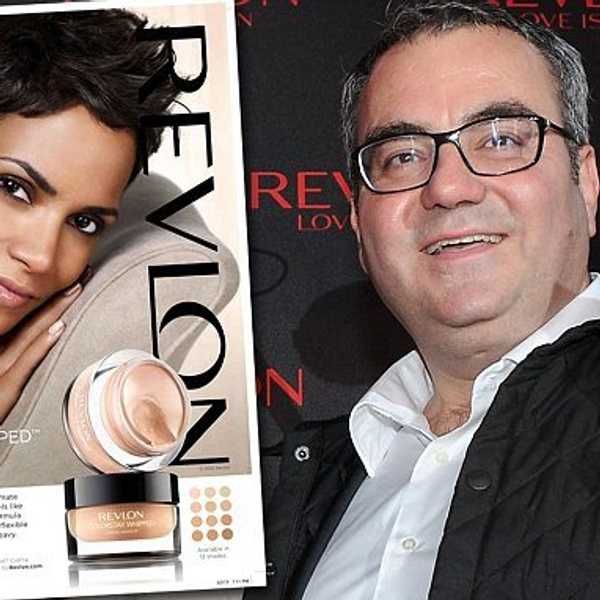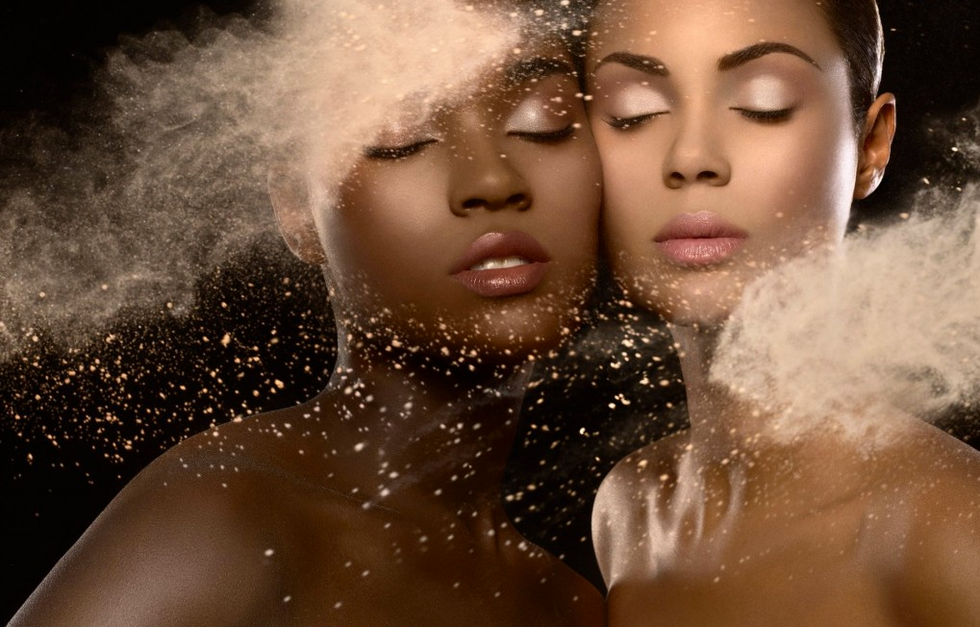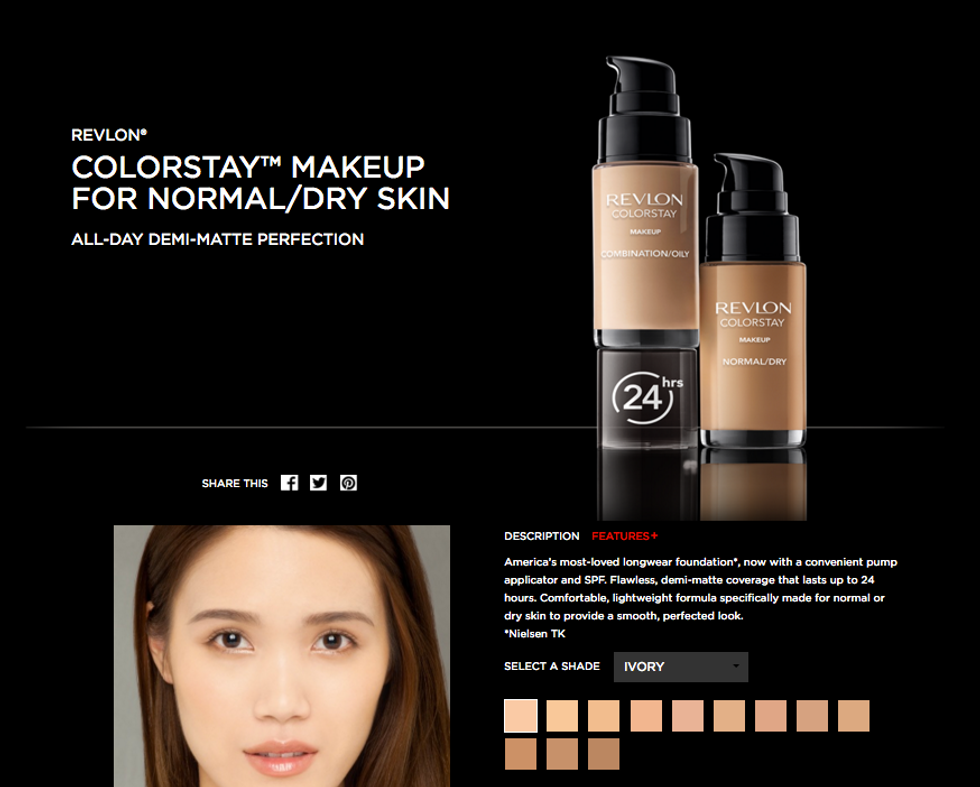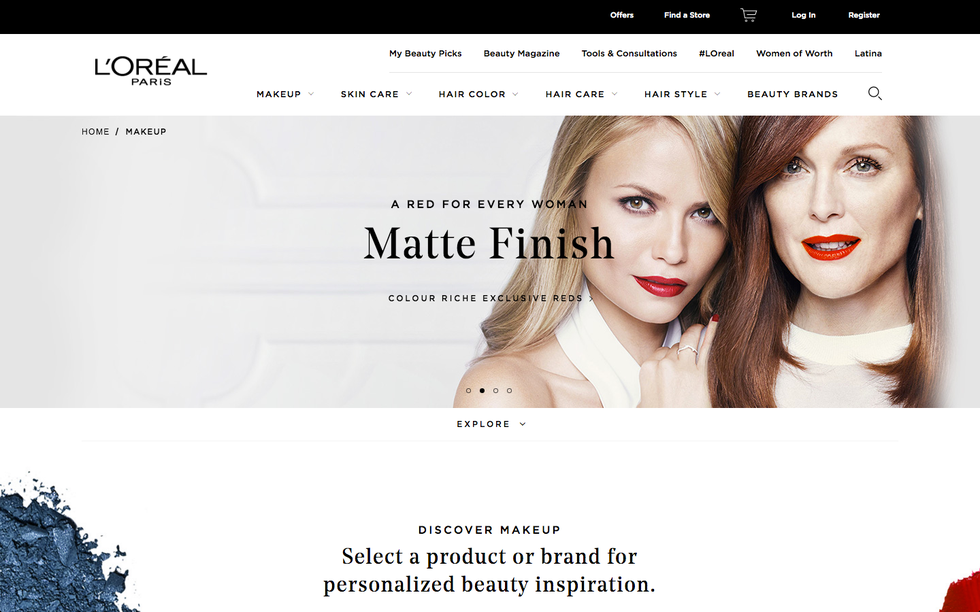If you have ever gotten a glimpse at a cosmetics aisle in a local grocery store, a magazine, or a television commercial, you've probably noticed how incredibly...pale everything seems to be when it comes to the world of beauty. It's no secret that many of the most popular makeup name brands like L'Oreal, Revlon, and Maybelline have done a very poor job of creating products that reach a wide range of skin tones, specifically darker ones.
Foundation, or face makeup, is one item in particular that many of these brands refuse to produce in dark hues, leaving women with dark skin out of the equation. Most product lines seem to include the skin tones of various women whose complexions can be identified as "fair," but when it's time to reach the darker end of the spectrum, the aisle conveniently seems to end.
As an African-American young woman with a light to medium beige complexion, it is not usually very difficult for me to find products that match my skin tone perfectly, but I'm still not satisfied, amused, or comforted. It sickens me that society views dark women of color in a way that suggests that not only are they not beautiful, but they are not even worth acknowledging.
Why is it that the darkest shade of makeup in most product lines is only a few shades darker than the lightest shade?
It is because society disregards and disrespects dark skin on dark people, but instead of just owning up to this blatant racism and colorism, companies like to pretend like they really have included all women. For instance, you might see companies label certain shades as "dark" or "deep," when they are actually still incredibly light.
Several companies have even gone so far as to whitewash the home pages of their websites and advertisements to the furthest extent possible. It's so easy to find beauty advertisements that are plastered with blonde hair, blue eyes, and white skin, but try finding an advertisement for these same companies that showcases a dark-skinned woman with kinky, coarse hair, and facial features that don't fit the traditional standards of beauty. It's like trying to find a needle in a haystack.
While I'm extremely proud of cosmetic companies like Black Opal and Milani that sell products specifically created for women of color, I'm disappointed that it even had to come to such a point. Black people, and black women especially, have constantly had to choose between conforming to a whitewashed world and fending for themselves.
The choice is either to take what is given to you by people who are disgusted by the darkness of your skin, or you create something yourself that embraces it.
Picture a world that glorifies dark-skinned people in the same way it glorifies ivory colored skin. It's interesting that dark skin is deemed beautiful when sprayed on white bodies at tanning salons. Dark skin seems to be sexy when squirted out of bottles and rubbed onto pale legs. Dark skin seems to be trendy when applied with bronzing brushes. Dark skin is cute when accompanied by blue eyes and straight, blonde hair, but God forbid a woman naturally born with this same darkness wants to be beautiful, sexy, trendy, or cute; this beauty turns into ugliness real quick and what used to be a trend becomes a deeply-rooted issue.
"People have always been afraid of the dark, but quick to bathe in the sun."
The fact that darker women of color are rarely accounted for in the beauty industry is so upsetting. Some of the most gorgeous women in the world have skin in deep cocoa and mahogany shades, yet they're pushed to the curb for women who are praised only for their light skin, as if their absence of melanin makes them more valuable.
I'm sick of seeing companies toss a fair-skinned, racially ambiguous model on their advertisements and commercials, as if that satisfies the many pleas from women of color begging for someone with some melanin to represent them. I'm also sick of the slogans attached to the various makeup companies that are intended to be catchy, cute, and inspiring, like L'Oreal's famous punch line, "Because you're worth it." I just want to know who "you" is referring to in this line, because clearly it's not referring to women of all skin tones. L'Oreal, do you really find everyone to be worth it? Or is "you" just referring to women who can pass the paper bag test? I need answers.
The face of every ad marketed to black people should not always be light-skinned. That simply perpetuates and further implements the notion that lighter skinned women are the only ones worth broadcasting or calling pretty. I'm sick of going into stores and seeing bottles of makeup clearly only intended for women with white skin. It is 2016. There are billions of people on this Earth, all with different skin colors, yet there are only about 12 shades accounted for on the average foundation line? Oh please. Let's get real.
Only four percent of women around the world consider themselves beautiful. I wonder why...























